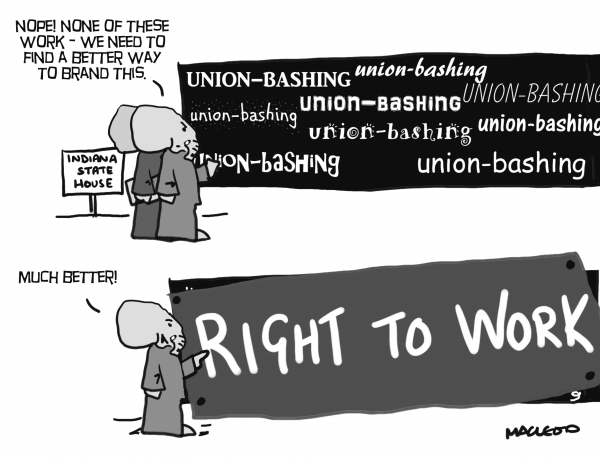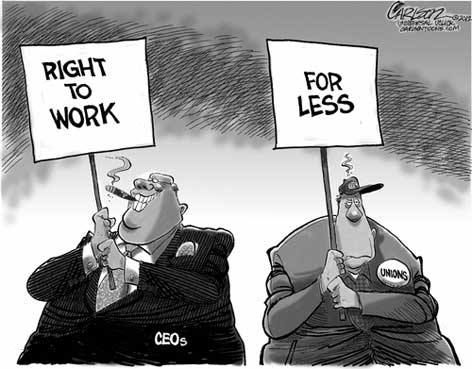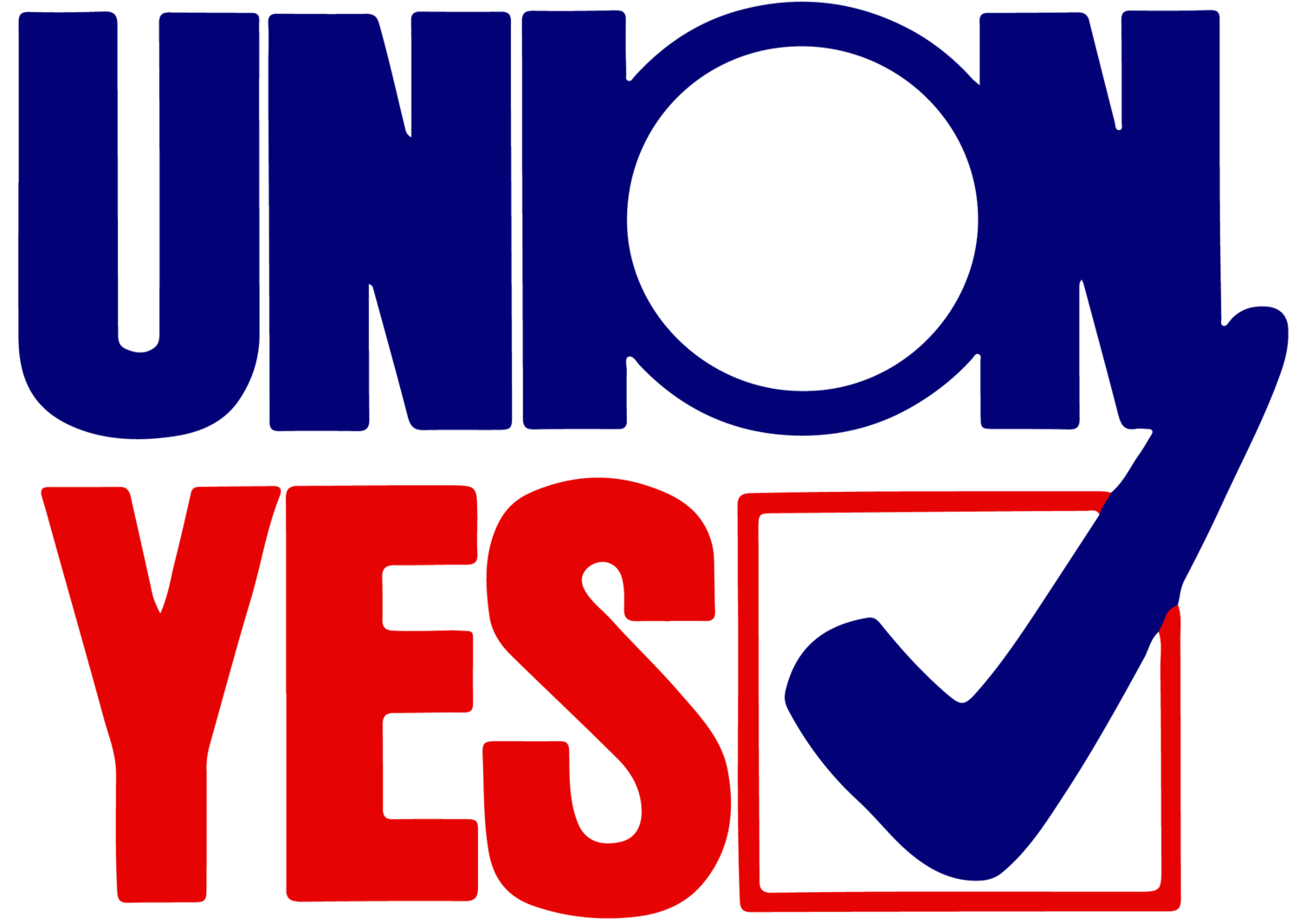
Florida is a “Right to Work” State
Many states, including Florida, have passed “right to work” laws. These laws do not mean you have a “right” to your job, it means you can be fired at any time for any reason, or no reason at all. At the same time, you have the “right” to quit at any time for any reason, or no reason at all. Politicians often like to give bad laws nice names to deceive the public.
The biggest consequence of “right to work” laws, is that states that passed them, such as Florida, do not recognize causes of action for wrongful termination, which was an employee’s right before the laws were passed. In short, “there is no action in Florida for the common law tort of wrongful termination.” Bass v. Metro Dade Cnty. Dept. of Corr. & Rehab., 798 So. 2d 835, 836 (Fla. 3d DCA 2001).
In Florida, state employees and employees who are part of a union may have remedies for disagreeing with their terminations and adverse employment actions. However, under Florida law, “[a]n employment contract which is indefinite as to term of employment is terminable at the will of either party without cause.” Gibbs v. H.J. Heinz Co., 536 So. 2d 370, 371 (Fla. 5th DCA 1988). In other words, a private “employer has a right to discharge an at-will employee for any reason—or no reason at all—so long as the reason is not prohibited by law.” Waaser v. Streit’s Inc., 520 F. Supp. 2d 1370, 1374 (N.D. Fla. 2007).
It is possible, but extremely rare, that an employee has a specific employment contract for a definite term. A definite term is a specific period of time, for example, “this employment contract shall last from August 1, 2019 until August 1, 2020.” Such employees may have rights under the contract and can seek damages if it is breached.
However, without a definite term, employment in Florida is at-will and “[n]o action may be maintained for the breach of an employment contract terminable at will.” Ross v. Twenty-Four Collection, Inc., 617 So. 2d 428, 428 (Fla. 3d DCA 1993).
Reasons Prohibited by Law
In Florida most employment is for an indefinite term and, as a result, the employment is at-will and no action for wrongful termination may lie unless the termination was for “reasons prohibited by law.”
Sadly there are not many “reasons,” which the law prohibits and the only grounds for a “wrongful” termination in Florida is if the termination is a result of discrimination based on race, sex, religion, national ancestry, age, marital status, HIV status, and maybe a few others. See Florida Civil Rights Act of 1992; Fla. Stat. §§ 760.01–760.11.
Generally “no clearly established right exists under the equal protection clause to be free from retaliation.” Ratliff v. DeKalb County, Georgia, 62 F.3d 338, 340 (11th Cir. 1995). However, certain types of retaliation are prohibited by statute. For example, there are statutes that provide protection for whistleblowers in both the public and private sector. Fla. Stat. § 448.101; Fla. Stat. § 112.3187. Employees who complain of unpaid wages or overtime are also protected from retaliation.
In the absence of a statute outlawing the retaliation, “Florida does not recognize an exception to the at-will doctrine in the form of a common-law tort for retaliatory discharge from employment.” Wiggins v. S. Mgmt. Corp., 629 So. 2d 1022, 1025 n.4 (Fla. 4th DCA 1993).

“Right to Work” Laws are Really Anti-Union Laws, which have Helped Kill Unions
In states that still have them, unions enter into agreements with employers that govern the extent to which an established union can require employees’ membership, payment of union dues, or fees as a condition of employment, either before or after hiring.
As stated above, “right to work” laws do not provide a general guarantee of employment to people seeking work, but rather they are a government ban on contractual agreements between employers and union employees, requiring workers to pay for the costs of union representation.
“Right to work” laws make unions represent all eligible employees, whether they pay dues or not. As a result, unions use their time and members’ dues money providing union benefits to employees who won’t pay their fair share. “Right to work” laws are designed to gut unions by making it harder for such organizations to sustain themselves financially, which in turn, undermines unions’ bargaining strength and even the possibility of workers forming one in the first place.
To add insult to injury, these laws are sold to workers as something that’ll help them get good paying jobs. These laws are advanced as a strategy for attracting new businesses to a state. They do this by lowering employee wages and benefits, weakening workplace protections, and decreasing the likelihood that employers will be required to negotiate with their employees.
Of course “right to work” laws attract new businesses and thus, in theory, new jobs. However, these new businesses come because they essentially have the government’s blessing to exploit labor and any jobs created are low paying and without benefits. According to the Economic Policy Institute, adjusting for all other factors, employees in “right to work” states have lower wages and less rights than employees in states that have not enacted these draconian laws.

Why does the Public have Anti-Union Sentiment?
Don’t Unions have a lot of Achievements?
By pooling the resources of each employee, unions help employees bargain with their employers for better wages, benefits, and working conditions. For this very reason, unions threaten big corporations. Yet many in the public have cynical or negative attitudes towards unions. Why? The massively wealthy have succeeded in misleading public opinion and getting us to vote against our own self interests.
If you have less than $1 billion and you hate unions, you’ve been brainwashed. Unions and the labor movement are the main reason we have Social Security, minimum wage, weekends, the 40-hour work week, workplace health and safety laws, child labor laws, antidiscrimination laws, unemployment assistance, and workers’ compensation.
This is not to say that unions are always good. Unions are still run by people and power is easily abused. However, we should differentiate between the guy running a particular union and the union itself. Just like any big entity, unions can have problems, but the purpose they serve is great and important. It is undeniable that as union coverage has declined and the voice of workers has correspondingly diminished, many of the key workplace standards past generations counted on have been eroded.
The National Labor Relations Act
The National Labor Relations Act (“NLRA”), also known as the Wagner Act for the politician that championed it, was passed in 1935 as part of President Franklin D. Roosevelt’s “New Deal.” See 29 U.S.C. §§ 151–169. The NLRA was a massive victory for the labor movement. It guarantees the right of private sector employees to organize into trade unions, engage in collective bargaining, and take collective action such as strikes. Like most of FDR’s “New Deal” programs, politicians today would likely call it “socialist.”
Among other things, the Act provided that a company could lawfully agree to be any of the following:
- A “closed shop,” in which employees must be members of the union as a condition of employment. Under a closed shop, an employee who ceased being a member of the union for whatever reason, from failure to pay dues to expulsion from the union as an internal disciplinary punishment, was required to be fired even if the employee did not violate any of the employer’s rules.
- A “union shop,” which allows for hiring non-union employees, provided that the employees then join the union within a certain period.
- An “agency shop,” in which employees must pay the equivalent of the cost of union representation, but need not formally join the union.
- An “open shop,” in which an employee cannot be compelled to join or pay the equivalent of dues to a union or be fired for joining the union.

The Labor Management Relations Act a/k/a The Taft–Hartley Act
As you might imagine big businesses were infuriated with the passage of the NLRA and began working immediately to kill, or at least neuter, the law. In 1947, they bought a major victory when Congress passed the Labor Management Relations Act, generally known as the Taft–Hartley Act, over presidential veto. See 29 U.S.C. §§ 141–197
The Taft–Hartley Act repealed some parts of the NLRA, including outlawing the “closed shop.” It also authorized individual states to outlaw the union shop and agency shop for employees working in their jurisdictions. Any state law that outlaws such arrangements is known as a “right to work state.” In the years that followed, 28 states passed “right to work” laws, predominantly in the Midwest, South, and Southwest.

Of course, Florida always does it bigger and better. Florida was the first state to enact a “right to work” law and is one of only six states, including Alabama, Arizona, Arkansas, Mississippi, and Oklahoma that have enshrined “right to work” laws in their constitution. See Fla. Const. Art. 1, § 6 (emphasis added) (“The right of persons to work shall not be denied or abridged on account of membership or non-membership in any labor union or labor organization. The right of employees, by and through a labor organization, to bargain collectively shall not be denied or abridged.”).

Shouldn’t Workers Have Rights?
Is There any Hope of Change?
Where unions are strong, compensation increases even for workers not covered by any union contract, as nonunion employers face competitive pressure to match union standards. Likewise, when unions are weakened by “right to work” laws, all of a state’s workers feel the impact.
Unfortunately, both major political parties have abandoned the working class and sold out to corporate interests, so there is plenty of blame to go around. Either way, until enough people realize how and why they have been screwed over, and care enough to do something about it, nothing will change.

